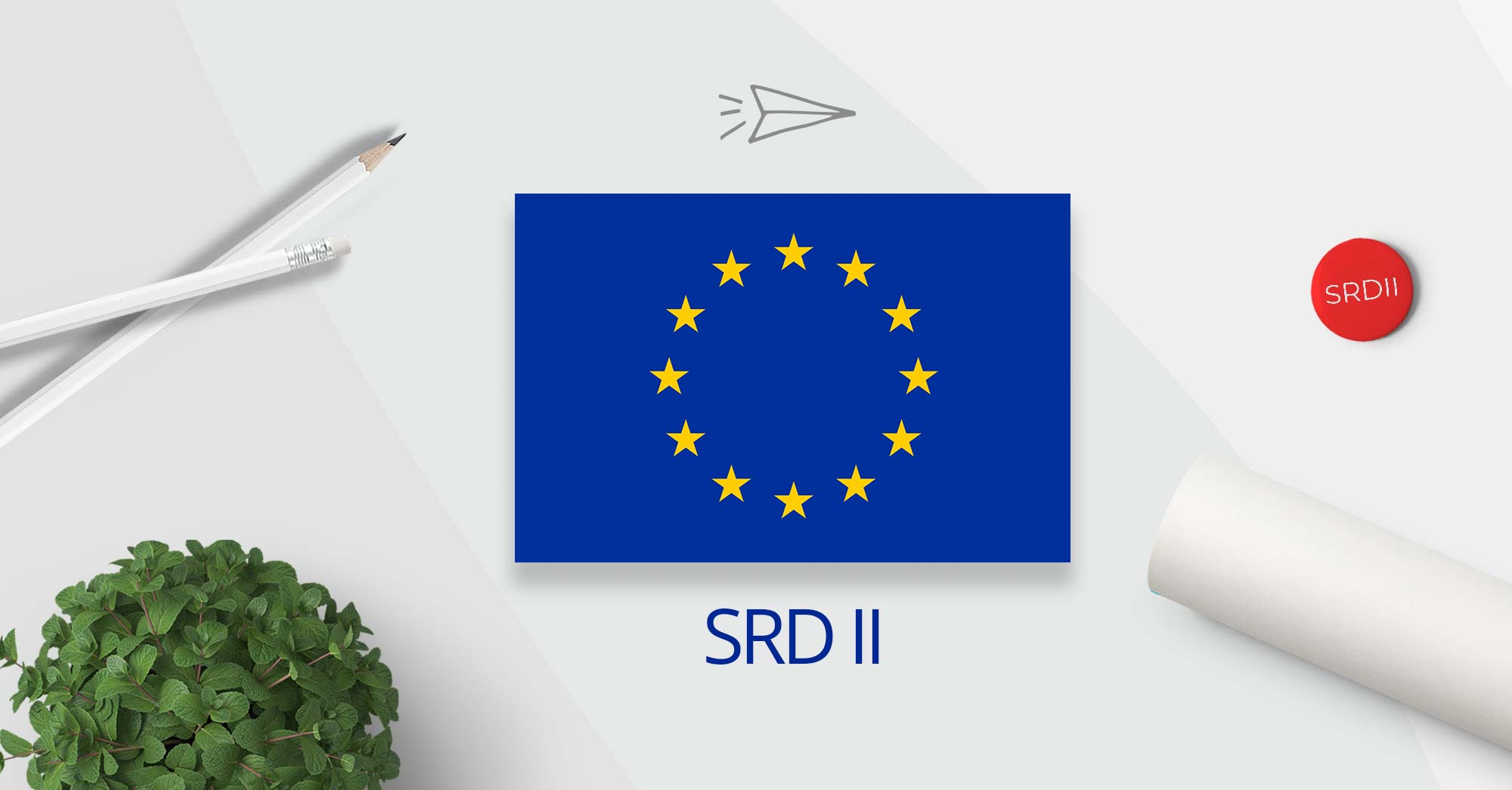Do you know what the Shareholder Rights Directive II (SRD II) is? Hopefully, you do – one important deadline passed last year.
SRD II is a revised European Union directive, aimed at strengthening the rights of shareholders, and ensuring that companies make decisions with long-term stability at the forefront. As of 10 June 2019, member states were required to formalise the majority of SRD II’s requirements into national law. However, there were certain key articles with a longer deadline.
With the final deadline coming due in September, there are many people wondering what exactly they are making changes for, and why it’s necessary.
Essentially, issuers, investors and intermediaries now have new rules around how information is shared. At its core, it is designed to: encourage long-term shareholder engagement, and streamline investor communication.
What is SRD II?
Ask anyone about SRD II, and the first thing they will tell you is that it is incredibly complex. That’s the thing with nationwide financial compliance regulations – they’re as complicated as they sound.
Three main areas where SRD II introduce greater complexity are:
- Stronger shareholder rights
- Stricter timeframes
- Increased transparency in communications
Not to mention that the revised directive is further reaching. Many companies will have to extend their voting services, while intermediaries outside of the EU – if they hold shares in EU-based issuers listed on EU regulated markets – will fall under its jurisdiction as well.
Strengthens shareholders rights
SRD II aims to strengthen shareholder rights, and one way it does so is by eliminating any undue delay in companies providing their shareholders with the necessary communications and arrangements.
This is great for shareholders, but it puts a lot of pressure on companies – the deadlines are strict and quick. You no longer just need to be accurate and comprehensive – you need to be accurate and comprehensive and fast.
SRD II also gives shareholders the right to vote on both the company’s remuneration policy and the remuneration report at AGMs. This ensures a stronger link between pay and the performance of the company’s directors.
It also ensures a lot more voting, and the required infrastructure to implement and support that. Companies that already have voting services, will most likely need to expand them. Those that don’t have them already, will need to build them from scratch.
Increases transparency
Under SRD II, the public has access to a full view of how an institutional investors’ equity investment strategy contributes to the performance of their assets – medium to long-term – as well as their liabilities. Asset managers, likewise, are subject to transparency and disclosure requirements twice a year.
Transparency is a great thing, for shareholders and the public, as it allows them to see exactly what is happening within the company – what decisions are being made, and crucially, how those decisions are affecting the company.
It’s also a great thing for companies; the public will trust a transparent company. But transparency doesn’t just happen. Disclosure, communication and transparency are fantastic – but they are also time and labour-intensive. Keeping people informed is a full-time effort, and it needs to be done internally, as well as externally.
How to stay compliant
There is, of course, a lot more to SRD II. And there’s definitely a lot more to it, when it comes to implementing it – there’s a reason there was a gap of a year between deadlines, for a single Article.
There is little upside to managing this yourself. Unless you’re an expert (or, more reasonably, a team of experts) adhering to all the rules internally invites risk, cost and complexity. And SRD II is far from the only change happening – various standards and regulations constantly change. Simply keeping up means you’re already behind – you need experts to keep you ahead of the curve, and safe from surprise.
At Global Shares, we share plan experts. We provide practical, clear and cost-effective services, tailored to your company.
For example, EquityAdmin has a full AGM / Company Meeting Voting suite, to fully support the directive’s requirement for the company’s employee-shareholders.
With us, this article would be a question – What is SRD II? – and an answer: Don’t worry. We’ve got you covered.
That’s it. That’s all you need to know.
Contact Global Shares for a free demo today.
This publication contains general information only and J.P. Morgan Workplace Solutions is not, through this article, issuing any advice, be it legal, financial, tax-related, business-related, professional or other. J.P. Morgan Workplace Solutions’ Insights is not a substitute for professional advice and should not be used as such. J.P. Morgan Workplace Solutions does not assume any liability for reliance on the information provided herein.



